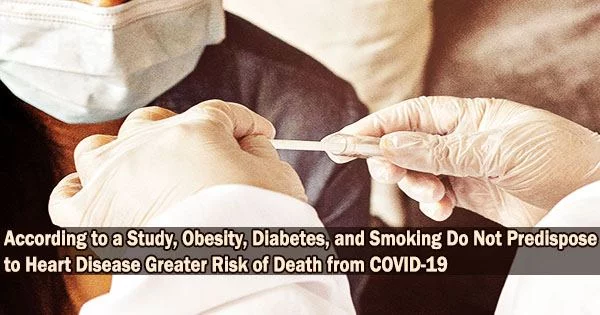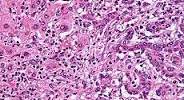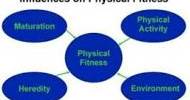According to a national study, the leading causes of death and poor outcomes for critically ill COVID-19 patients are not previous heart disease but rather risk factors for cardiovascular disease such age, smoking, and diabetes.
More than 5,100 patients with severe COVID were admitted to critical care units at 68 facilities across the United States between March and June 2020. A team of researchers lead by academics from Michigan Medicine examined the outcomes for these patients. 1,174 of those patients already had atrial fibrillation, congestive heart failure, or coronary artery disease.
The findings show that patients with cardiovascular disease had a death rate that was about 30% greater than that of severely ill COVID patients who did not have the underlying condition. However, the association was no longer statistically significant when risk factors like age, sex, race, smoking, and others were taken into account. The findings are published in Circulation: Cardiovascular Quality and Outcomes.
“The fact that the association between cardiovascular disease and death was so heavily diminished when accounting for comorbidities suggests that cardiovascular risk factors rather than preexisting heart disease are the main contributors to in-hospital death in patients with severe COVID-19,” said senior author Salim Hayek, M.D., an assistant professor of internal medicine and medical director at the University of Michigan Health Frankel Cardiovascular Center Clinics.
Nearly 18% of patients experienced a cardiovascular event, such as myocarditis or cardiac arrest, and a total of 34.6% of patients passed away within 28 days. According to researchers, patients with and without preexisting heart disease experienced the same correlation between these events and death.
The evidence of heart damage that we frequently see in patients with severe COVID-19 is more likely a reflection of the severity of the illness and the stress it imparts on all organs rather than the development of new complications or the exacerbation of preexisting heart disease.
Salim Hayek
Cardiovascular disease, which is prevalent in older persons and is related with chronic inflammation, is a common problem among patients with severe COVID sickness. Age, obesity, and diabetes were substantially better predictors of death from COVID in the research.
Researchers showed that myocardial damage was linked to cardiovascular events and death regardless of whether a patient had prior heart disease. Patients in the ICU frequently suffered from myocardial injury, which was present in almost half of those with elevated troponin levels. Troponin is a protein that is released when the heart muscle is injured.
The risk of death was almost three times higher for patients with the highest troponin values than for those without myocardial damage.
“While patients with severe COVID commonly had signs of cardiac injury, our findings reinforce COVID-19 as a pulmonary disease with multi-organ injury related to systemic inflammation,” Hayek said.
“The evidence of heart damage that we frequently see in patients with severe COVID-19 is more likely a reflection of the severity of the illness and the stress it imparts on all organs rather than the development of new complications or the exacerbation of preexisting heart disease.”
According to co-first author Alexi Vasbinder, Ph.D., R.N., a postdoctoral fellow in internal medicine, the findings should not minimize the fact that patients with cardiovascular disease are still at risk for dying from COVID-19 because they have a high burden of risk factors for the disease, such as diabetes, hypertension, and smoking.
“We are currently working on studies to further define groups of patients with COVID-19 at highest risk for severe outcomes, such as those with advanced heart failure or coronary artery disease,” Vasbinder said.
Additional authors include Chelsea Meloche, M.D., Tariq U. Azam, M.D., Elizabeth Anderson, M.S., Tonimarie Catalan, Husam Shadid, M.D., Hanna Berlin, Michael Pan, M.D., Patrick O’Hayer, M.D., Kishan Padalia, M.D., Pennelope Blakely, Ibrahim Khaleel, M.D., Erinleigh Michaud, M.D., Yiyuan Huang, Lili Zhao, Ph.D., Rodica Pop-Busui, M.D., Kim Eagle, M.D., all of University of Michigan, Shruti Gupta, M.D., David E. Leaf M.D., both of the Division of Renal Medicine at Brigham and Women’s Hospital.
















